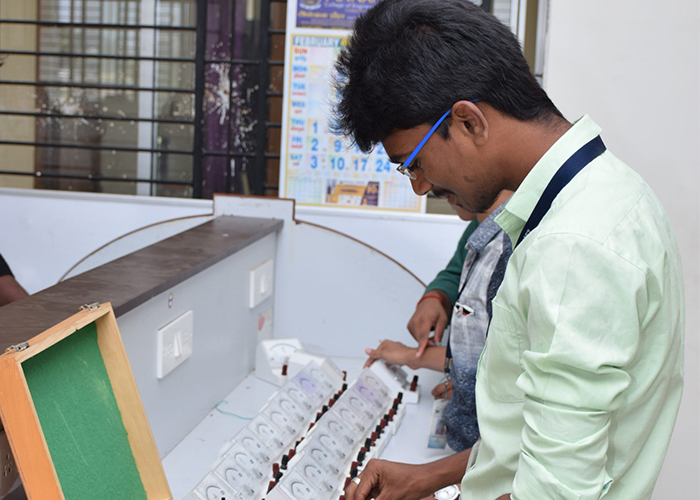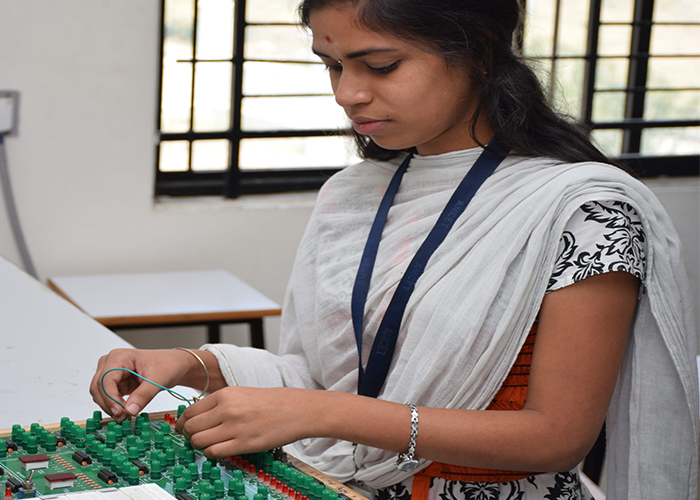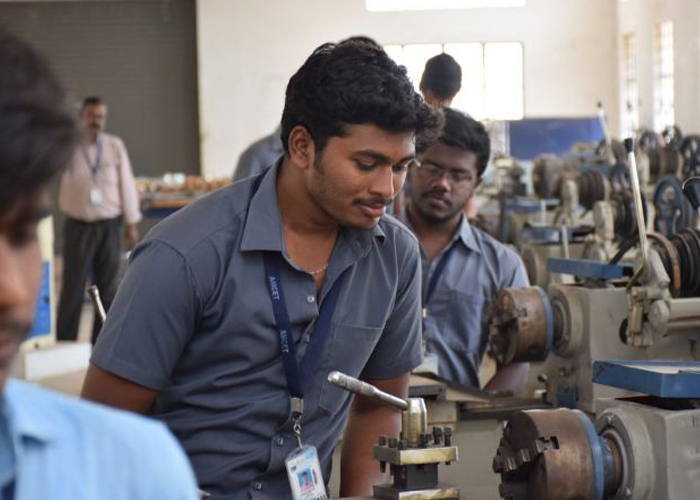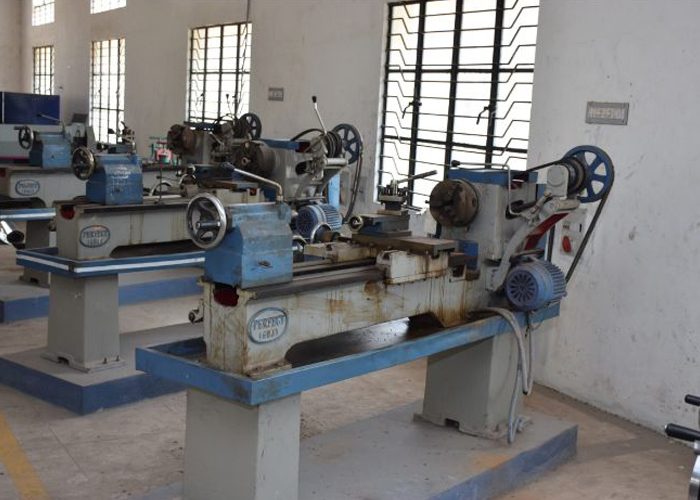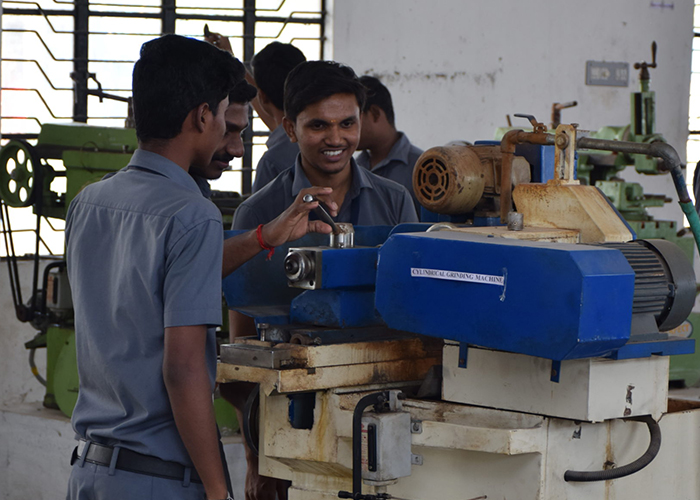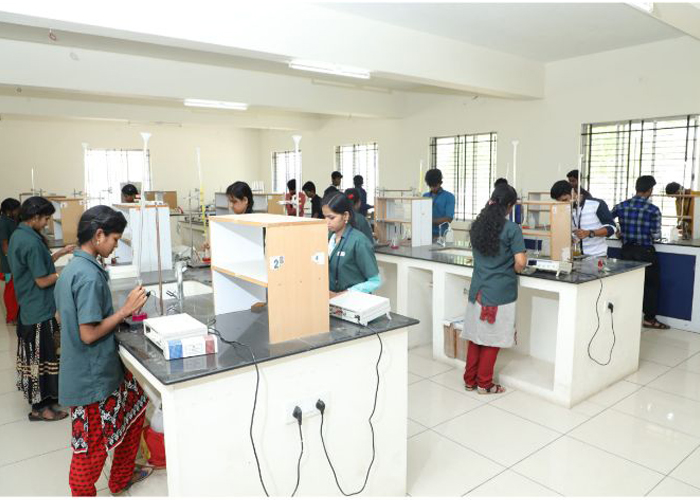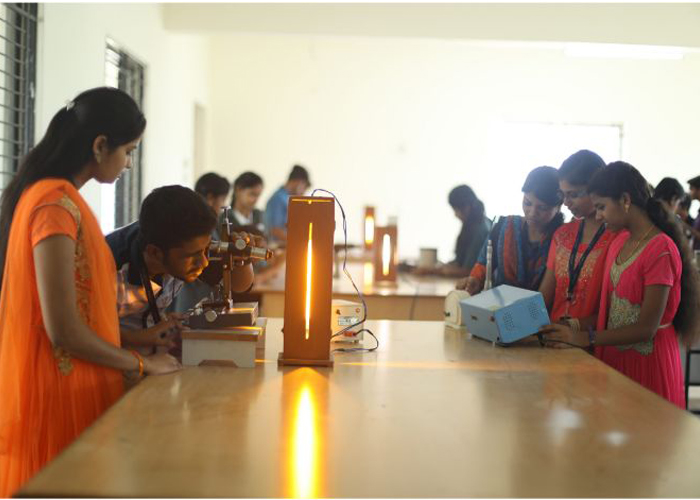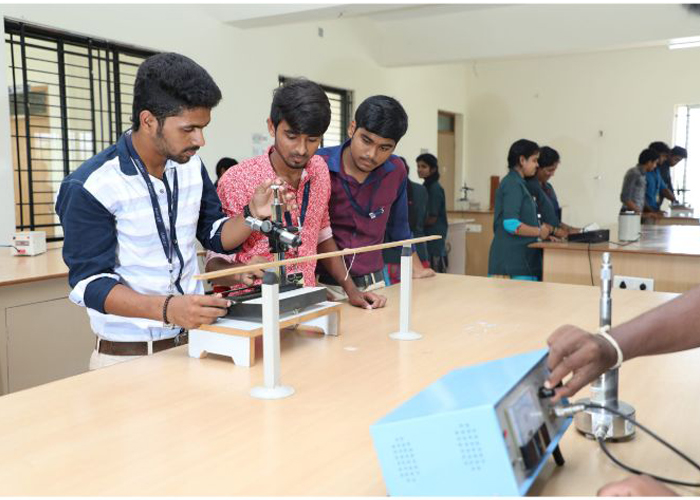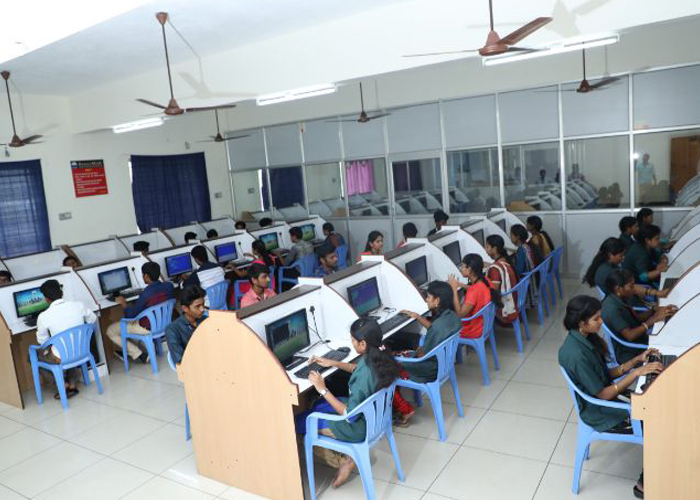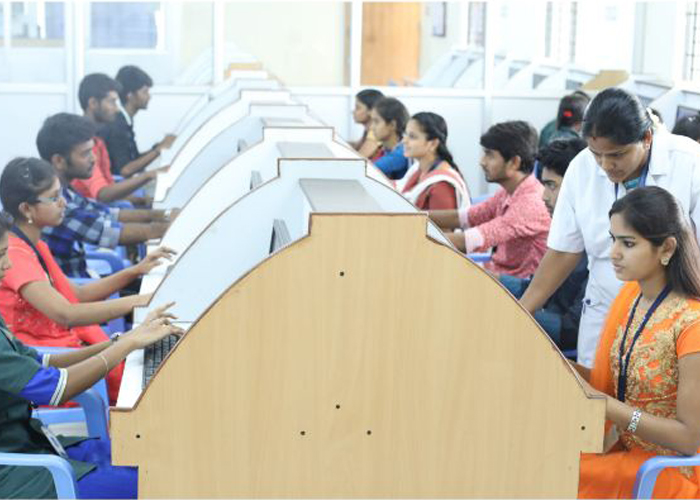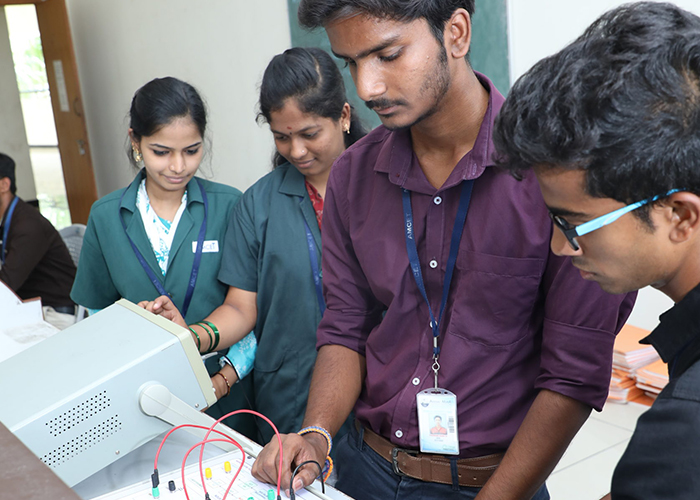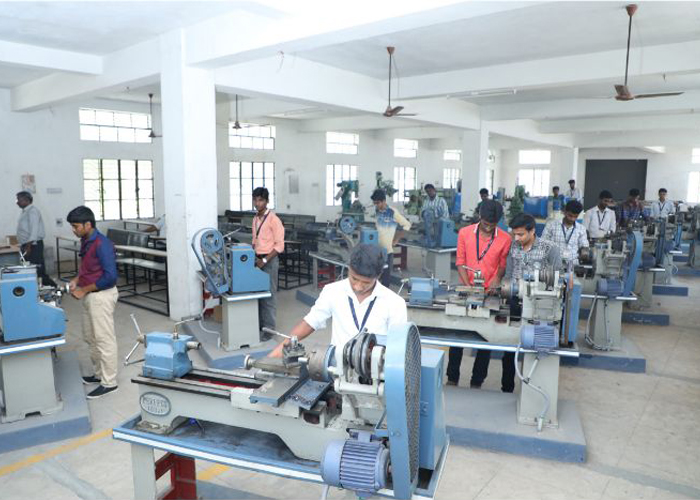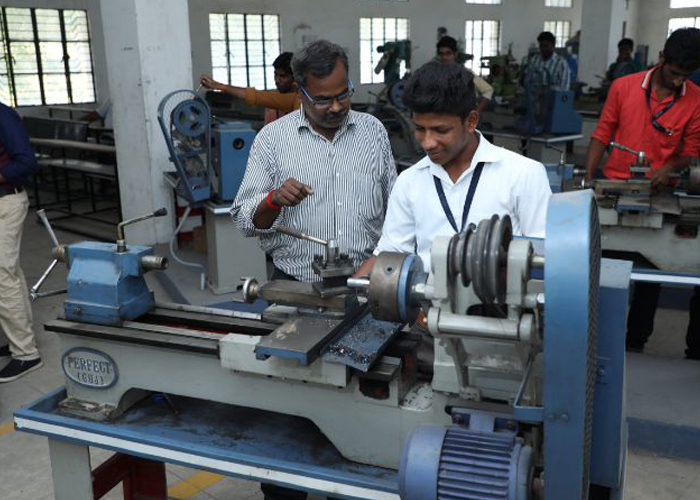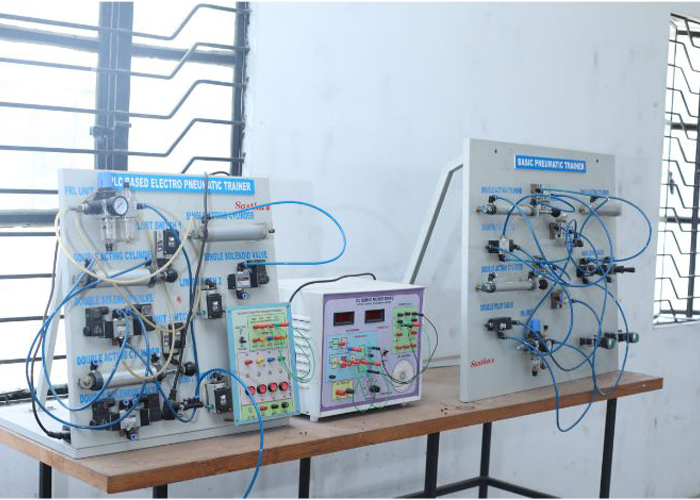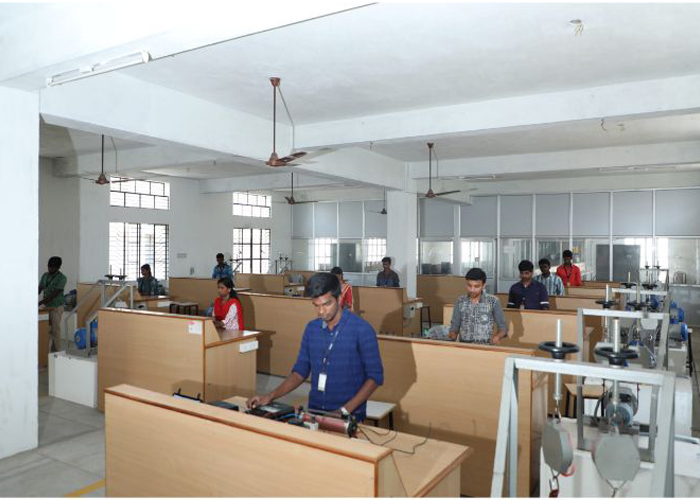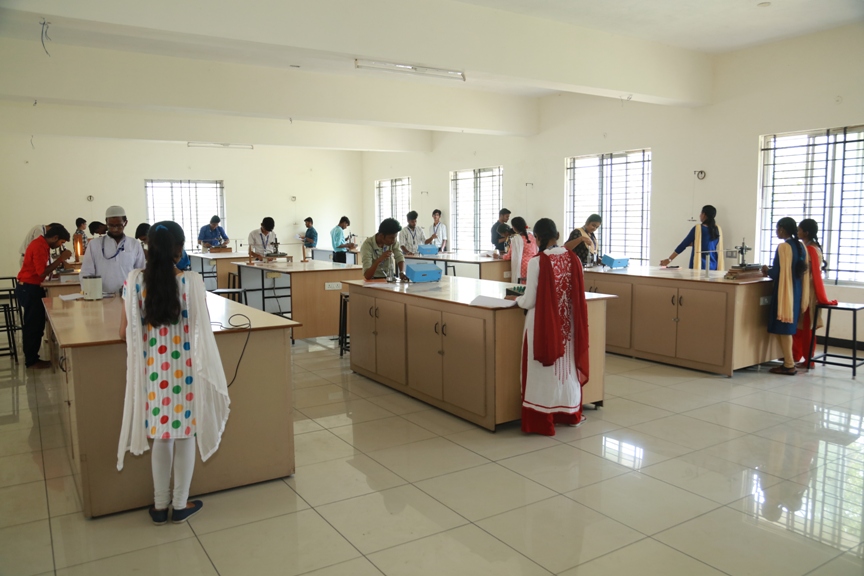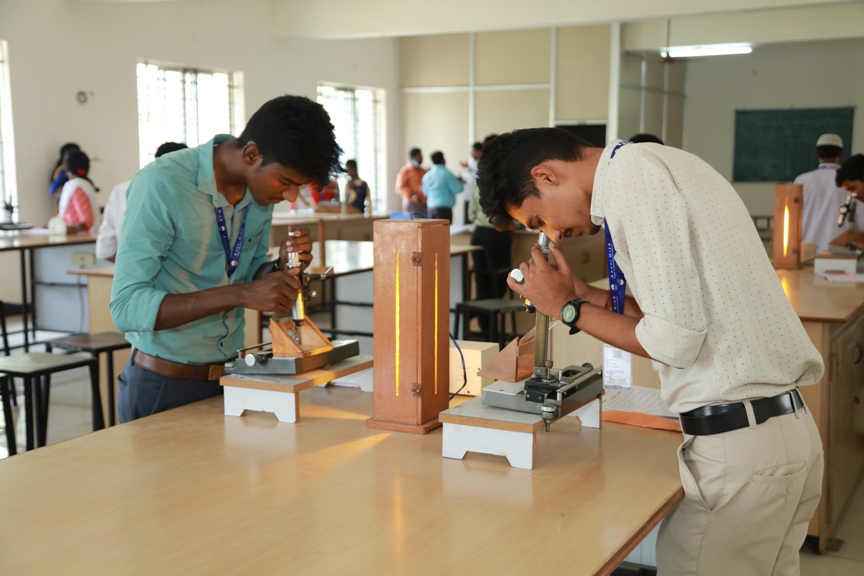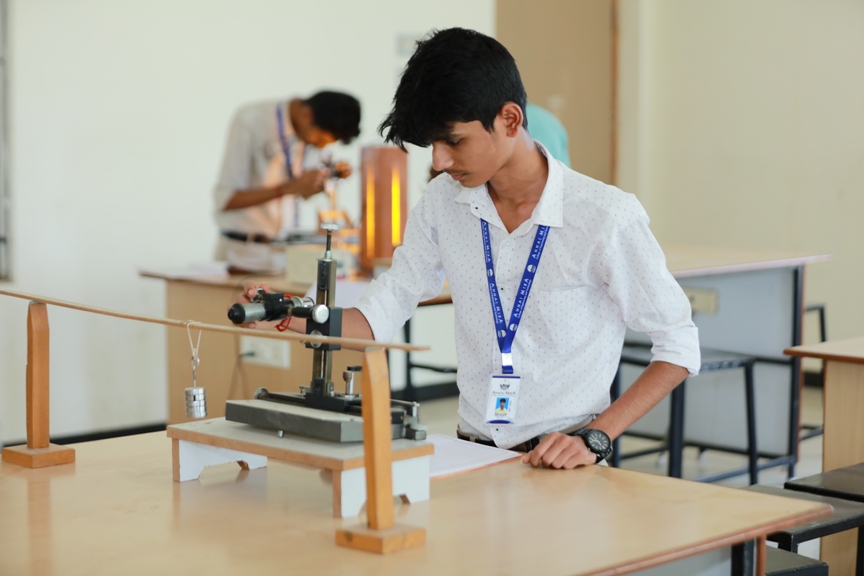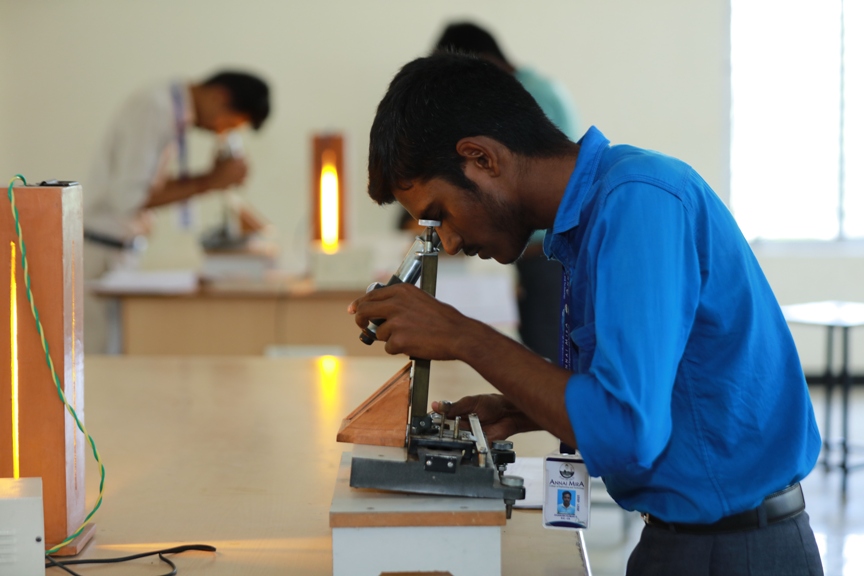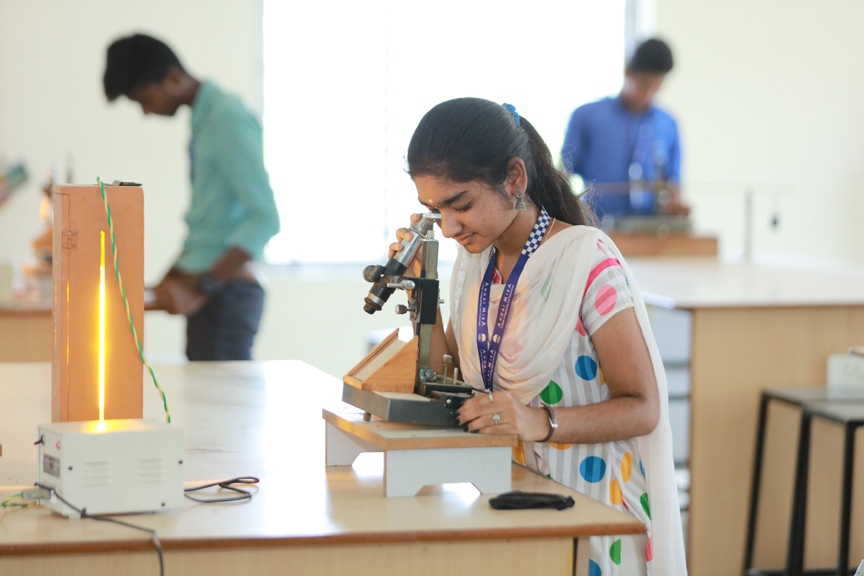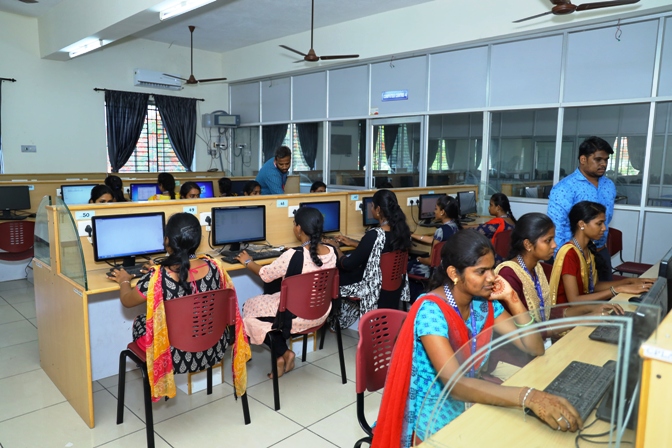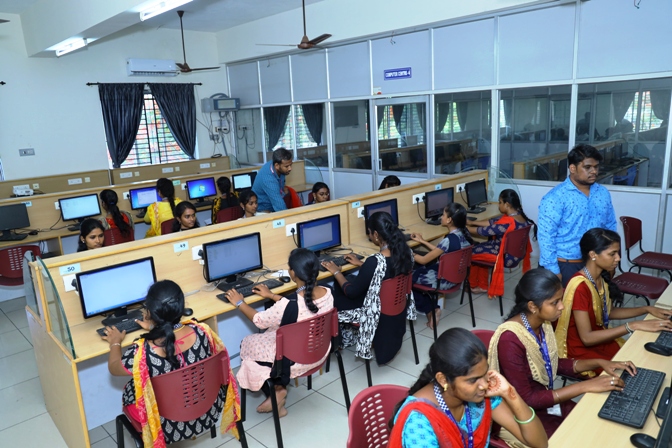- Email: [email protected]
- Mobile: 94433 04963
- Online Grievances
- Careers
- Contact Us
- Follow Us:
Admissions Hotline - 99523 87017
Laboratories
Laboratory Facilities
- Communications Lab
- Microwave Lab
- Networking Lab
- VLSI Lab
- DSP Lab
- Digital electronics Lab
- Linear integrated circuits Lab
- Electronic circuit’s Lab
- Electronic devices Lab I & II
- Microprocessor Lab
- Project Lab
- PG simulations Lab
Laboratory Facilities
Laboratories attached to the department are equipped with latest machinery/ equipment/instruments to train students to the level of industry expectations. Some of the major facilities available are
Power Electronic Laboratory
Device kit, CRO, VI Characteristics of SCR, MOSFET, IGBT, TRIAC, DIAC, Stepper motor, CYCLO Converter, DC drives, AC drives, Single phase inverter, converter.
Electrical workshop
The students are trained on house and industrial wiring systems, PCB making, winding study of the motor.
Electrical Machines Laboratory
Different types of DC generators and motors – separately excited, shunt, series and compound type. Synchronous Motors, Single phase and three phase Induction Motors, Transformers, Auto Transformers, Alternator sets and various kinds of starters.
Electronics Laboratory
Cathode Ray oscilloscopes, Function generators, Multimeters, Variable and fixed Power Supplies, Analog and Digital Trainer Kits.
EEE Simulation Laboratory
MATLAB, SIMULINK, PSPICE, PLC
Measurements and instrumentation laboratory
LVDT kit, Bourdon pressure transducer arrangement, Maxwell’s Inductance Bridge, Schering Bridge, Wheat stone Bridget, Kelvin Double Bridge, Instrumentation Amplifier module, Series AC&DC circuit trainer, Current Transformer setup.
Laboratory Facilities
- Welding Shop
- Sheet Metal Shop
- Foundry Shop
- Fitting Shop
- Fluid Mechanics and Machinery Lab
- Lathe Shop
- CAD Lab
- CAM Lab
- Engineering Graphics Lab
- Cloud Computing and Networking Laboratory
- NS2
- Glomosim
- CloudSim
- Maven
- Cisco Packet Tracer
- Aneka
- MongoDB
- Advanced Database Laboratory
- Oracle
- MySQL
- MongoDB
- Weka
- SWI-Prolog
- Other database tools
- Advanced Data Structures Laboratory
- Programming in Java
- Programming in C
- Programming in C++
- Software Development Laboratory
- StarUML
- QTP
- IBM Rational Rose (RR)
- Other Specialized Labs
- Network Labs
- DBMS Labs
- Computer Graphics Labs
- Web Technology Labs
- Research Labs
- Basic Programming Labs
- Python
- Java
- Other programming languages
- Transportation Engineering: This division houses a Computer Laboratory equipped with software for transportation planning, simulation, highway planning, and GIS applications.
- Soil Mechanics and Foundation Engineering: This division features equipment like a Triaxial Testing System, Static Cone Penetration test facility, and Universal Testing Machines (UTMs) for various soil testing purposes.
- Environmental Engineering: The Centre for Environmental Studies (CES) has an Air and Noise Quality Monitoring Laboratory equipped for stack monitoring and ambient air quality monitoring.
- Other Labs: The Department of Civil Engineering also includes labs for structures, water resources, and urban engineering.
- Key Equipment and Resources:
- Software: STELLA, Geo-media, EMME/2, SPSS, Bentley Software, ArcGIS, and others.
- Testing Equipment: Triaxial Testing System, Static Cone Penetration test facility, UTMs, direct shear apparatus, consolidation apparatus, pressure meter.
- Instrumentation: Respirable Dust Sampler, Fine Particulate Sampler, VOC and CO Analyzers, Sound Level Meter, Flue Gas Analyzer.
- Research Facilities: The Centre for Multi-Disciplinary Systems Research (CMDSR) offers advanced systems engineering research facilities.
- Materials Informatics: The Centre of Materials Informatics (C-MaIn) provides a hub for research on materials science and technology using computational and experimental methods.
- Data Science and Analytics Lab:
- Purpose: This lab emphasizes practical learning of data analysis, data visualization, and statistical methods. Students work with large datasets to understand patterns and gain insights through different data analysis techniques.
- Key Software/Tools: Python, R, Tableau, Power BI, Pandas, NumPy, Matplotlib, and other data analytics tools.
- Database Management System (DBMS) Lab:
- Purpose: This lab helps students understand the design, development, and management of databases, which is essential for handling large datasets in Data Science and AI applications.
- Key Software/Tools: SQL, MySQL, Oracle, PostgreSQL, MongoDB, and other database tools.
- Big Data Analytics Lab:
- Purpose: This lab is designed to provide students with hands-on experience in handling and analyzing large-scale data (Big Data). Topics such as Hadoop, Spark, and NoSQL databases are commonly covered.
- Key Software/Tools: Hadoop, Apache Spark, MongoDB, HBase, and other Big Data frameworks.
- Natural Language Processing (NLP) Lab:
- Purpose: This lab focuses on the practical applications of NLP, which is an integral part of AI. Students learn to work with text data, analyze sentiment, and apply language models.
- Key Software/Tools: Python, NLTK, SpaCy, Gensim, Stanford NLP, and other NLP tools.
- Computer Vision Lab:
- Purpose: This lab provides hands-on experience in the field of computer vision, including image processing, object detection, facial recognition, and other computer vision tasks.
- Key Software/Tools: OpenCV, TensorFlow, Keras, PyTorch, and other image processing and computer vision libraries.
- Cloud Computing Lab:
- Purpose: Students learn how to leverage cloud platforms for deploying AI/ML models and applications. Cloud services like AWS, Google Cloud, and Microsoft Azure are used for training and deploying models at scale.
- Key Software/Tools: AWS, Microsoft Azure, Google Cloud, Docker, Kubernetes.
- Internet of Things (IoT) Lab: *(optional for some programs)*
- Purpose: While not directly related to AI, IoT labs allow students to explore how IoT devices can integrate with AI and Data Science to provide solutions like smart homes, healthcare, and more.
- Key Software/Tools: Arduino, Raspberry Pi, IoT sensors, Python, cloud-based IoT platforms.





